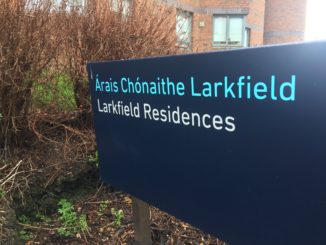
There are fears a Tuberculosis (TB) outbreak in DCU could be much worse than originally reported. On Friday, college authorities confirmed that two students had tested positive for non-contagious strands of the disease.
However, The College View now understands dozens of students could have contracted TB after tests were carried out in the DCU Health Centre on Tuesday and Friday last week on those considered to be in contact with the two students currently receiving treatment.
TB is a bacterial disease and usually causes an infection of the lungs but can affect other parts of the body including the bones, kidneys and lymph nodes. Both infectious and non-infectious strands of TB can be contracted.
Symptoms of infectious TB include fever, night sweats, weight loss and coughing blood. Another form of the disease, known as Latent TB, does not present any symptoms usually.
Those identified by the HSE as being “in contact” with the infected were contacted by the Department of Public Health/TB Unit by letter on February 15th and were advised to attend the health screenings carried out last week.
The letter, seen by The College View, told students: “The Department of Public Health has been notified about a person in your college who has recently been found to have Tuberculosis(TB). You have been identified as a contact. The risk of getting TB is low, however it is advisable that you are screened in order to detect early active TB or Latent TB infection.”
The results of these tests are expected sometime this week.
However, a source told The College View it has been indicated to several students that they will test positive for TB. The source, who was also tested for the disease, says several students’ arms flared up where they had been tested.
This flaring up indicates someone is infected with the disease, either TB or Latent TB.
According to information leaflets distributed by the HSE to those “in contact”, prolonged close contact with an infectious case of TB increases the risk of getting it but the chances of this are 1-3%. TB treatment is very effective, especially if it is caught early.
Dublin North East Communications Officer for the HSE Frances Plunkett told The College View she could not disclose details of individual cases but said the public’s health was not at risk.
She said: “Screening of close contacts in the college setting is underway in accordance with the Guidelines for the Control and Prevention of Tuberculosis in Ireland 2010 and appropriate information has been provided to all relevant contacts.
“There is no risk to the public.”
There have been sporadic outbreaks of TB around the country in recent times. In December, the HSE confirmed a case of the disease had been identified on Inis Oirr, in the Aran Islands. In 2012, there were confirmed cases of the disease in schools in Drogheda, Portlaoise, Galway and Cork.
The HSE says any person with any of the symptoms should visit their family doctor for advice. If someone has a reason to think that they might have TB, they should tell this to their doctor.
Further information regarding TB is available on the Health Protection Surveillance Centre website http://www.hpsc.ie/
Sam Griffin




Leave a Reply